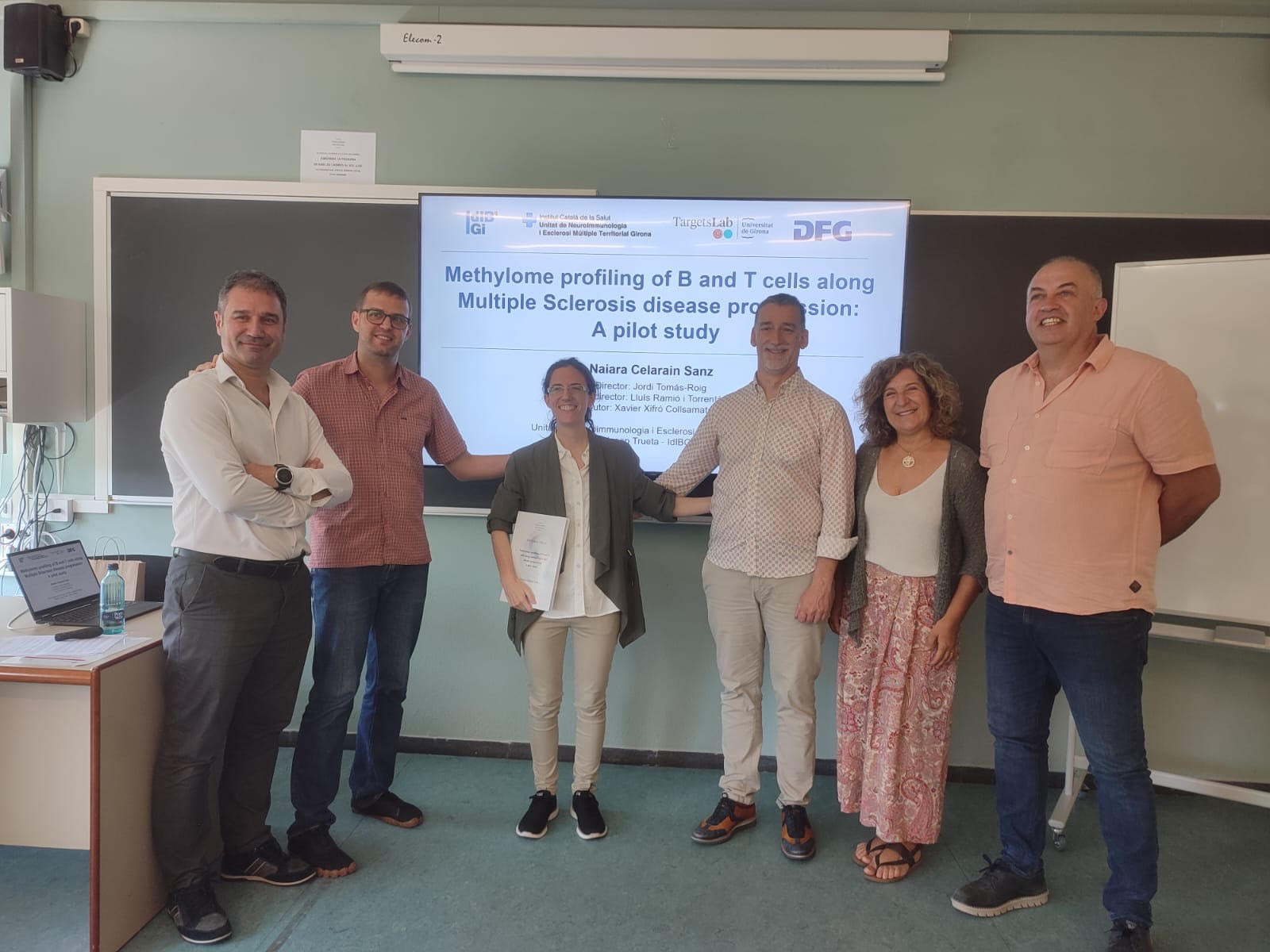
This past Monday 26/06/2023 at 10:30 am, Mrs. Naiara Celarain read her doctoral thesis entitled: "Methylome profiling of B and T cells along Multiple Sclerosis disease progression: A pilot study" directed by Dr. Jordi Tomàs-Roig and Dr. Lluís Ramió.
Summary
Multiple Sclerosis (MS) is a chronic, inflammatory, autoimmune disease characterized by the infiltration of autoreactive immune cells (such as B and T cells), which trigger axonal damage, demyelination, and ultimately neurodegeneration. MS is the leading cause of non-traumatic disability among the young population, with a global toll of 2.8 million people affected worldwide.
Although the etiology of MS is still unknown, strong indications suggest that it is due to a complex interaction between genetic and environmental factors mediated by epigenetics. One of the most studied epigenetic mechanisms is DNA methylation, which involves the addition of a methyl group to a cytosine. This epigenetic mechanism is involved in multiple vital functions such as the regulation of gene expression or the silencing of retrotransposable elements of the genome. Alterations in the methylation profile of the genome have been associated with pathogenic processes, including MS. Methylation studies in MS have focused on tissues with a heterogeneous cell population, such as peripheral blood mononuclear cells. Currently, there is scientific evidence that attributes to each cell population a unique and distinctive methylation profile, a fact that must be taken into account in the pathophysiological study of the disease.
This doctoral thesis has focused on the study of the complete DNA methylation profile of memory B cells and regulatory T cells. These two cell types have been obtained from peripheral blood of patients recently diagnosed and in progressive stages of the disease. To obtain the complete methylome, technology based on immunoprecipitation of the methylated DNA followed by its sequencing was used. Secondly, the transcriptome of genes showing differentially methylated regions between the different study groups has been characterized. In addition, the transcriptome of those differentially methylated genes encoding microRNAs has been studied.
In summary, recently diagnosed patients show a global DNA hypomethylation in both cell types, while patients in more progressive stages show a marked DNA hypermethylation. After analyzing the transcriptome of differentially methylated genes, it has been observed that at the onset of the disease, MS patients show significant changes at the RNA level of PTGFRN, IL21R, NOS1, OSBP2 and MIR181C genes in memory B cells, and ECEL1P2 in regulatory T cells.
In MS patients in progressive stages of the disease, on the other hand, differential expression of MIR29A, MIR26A1, MIR150, MIR193A, MIR30D, and MIR92B genes has been detected in memory B cells. Among them, because of their neuroprotective nature, miR-29a, miR-30d, and miR-26a become promising candidates for future epigenetic therapies.